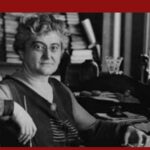 13. Landesweiter Tag der Genderforschung in Sachsen-Anhalt (Web)
13. Landesweiter Tag der Genderforschung in Sachsen-Anhalt (Web)
Zeit: 14.11.2024
Ort: Magdeburg
Einreichfrist: 01.08.2024
In unserer Gegenwart spielen Körperdiskurse und der Körper selbst eine immense Rolle. Körper begegnen uns täglich in ihren Facetten von Gestaltbarkeit, Verfügbarkeit, Normierung, als zugerichtete, präsentierte oder stigmatisierte Körper und werden so zum Seismographen für gesellschaftlich akzeptierte oder abgelehnte Praktiken. Auch wissenschaftlich ist der Körper in den letzten Jahrzehnten in den Fokus gerückt (somatic turn oder body turn), wobei auch Gender- und Diversitätsdimensionen zunehmend in den Blick geraten und im Kontext intersektionaler Zugänge gedacht und verhandelt werden. Die engen Verflechtungen und Interdependenzen zwischen Körper, Geschlecht und Gender kann man auch daran ablesen, dass gesellschaftspolitische Debatten um Feminismus, Gleichstellung und Diversität ganz essenziell von der Ebene des Körperlichen bestimmt werden.
Vor diesem Hintergrund verortet sich die Tagung an der Schnittstelle von Körperdiskursen und Genderforschung mit dem Ziel, die komplexen Zusammenhänge zwischen Körper, Geschlecht und Gender aus den verschiedensten Perspektiven zu beleuchten. Weiterlesen … (PDF)
Veranstalter:innen: Koordinierungsstelle Genderforschung & Chancengleichheit Sachsen-Anhalt (KGC), Büro für Gleichstellung und Familie der Otto-von-Guericke-Univ. Magdeburg (OVGU) und Projekt gender*bildet der Martin-Luther-Univ. Halle-Wittenberg (MLU)

 Hungarian Historical Review
Hungarian Historical Review  Signs: Journal of Women in Culture and Society; Laura Green (Northeastern Univ.) and Chris Bobel (Univ. of Massachusetts Boston)
Signs: Journal of Women in Culture and Society; Laura Green (Northeastern Univ.) and Chris Bobel (Univ. of Massachusetts Boston)  Archiv der deutschen Frauenbewegung (AddF)
Archiv der deutschen Frauenbewegung (AddF)  Institut für die Erforschung der Habsburgermonarchie und des Balkanraumes der Österreichischen Akademie der Wissenschaften
Institut für die Erforschung der Habsburgermonarchie und des Balkanraumes der Österreichischen Akademie der Wissenschaften